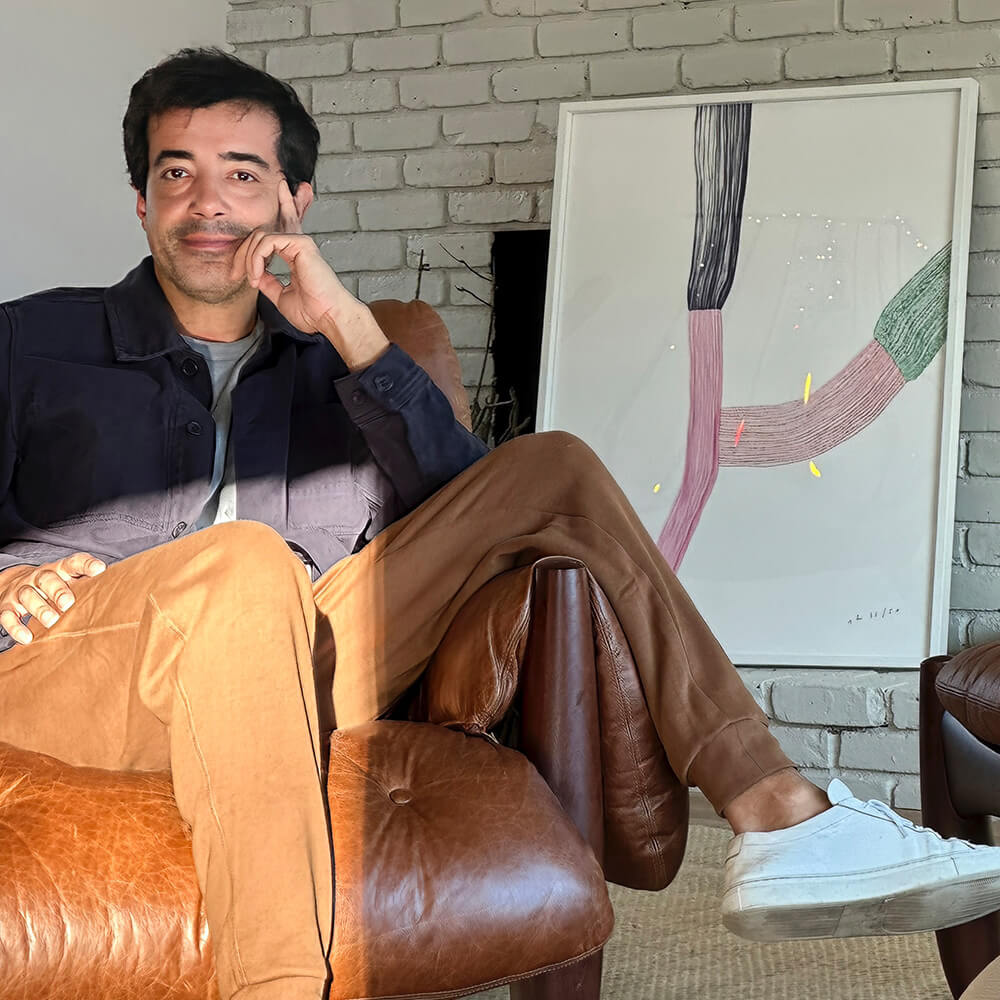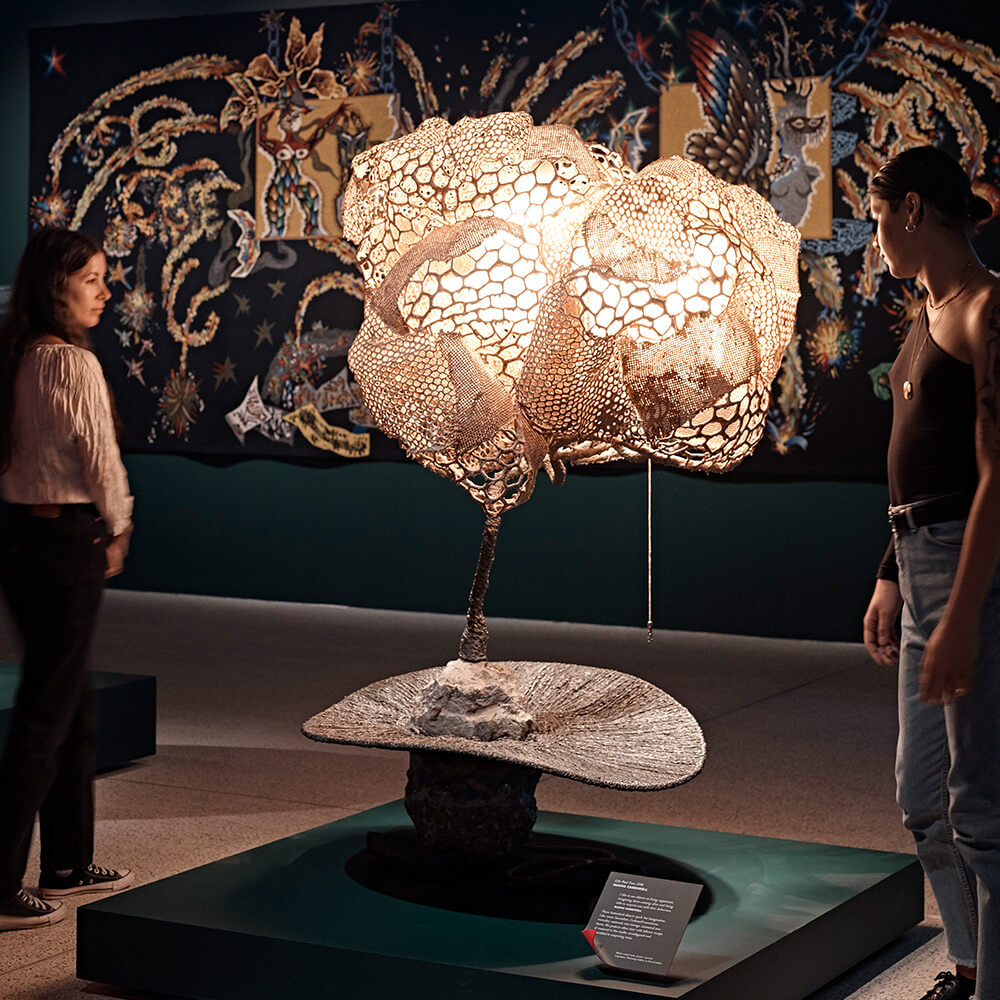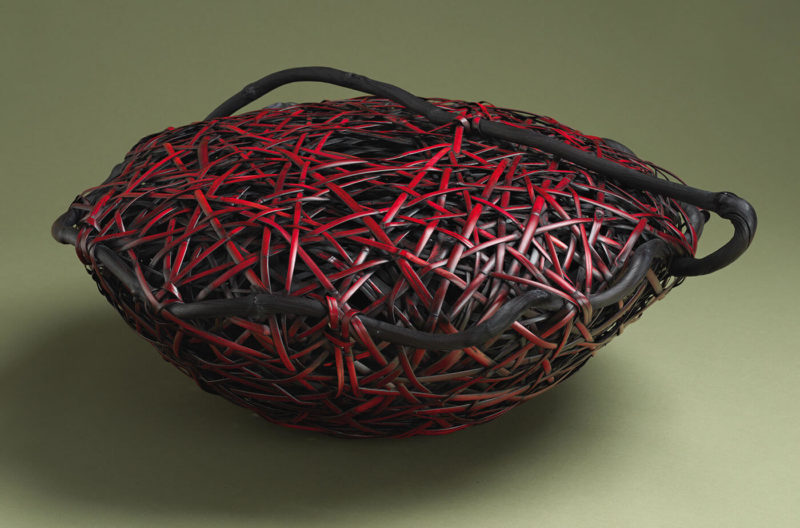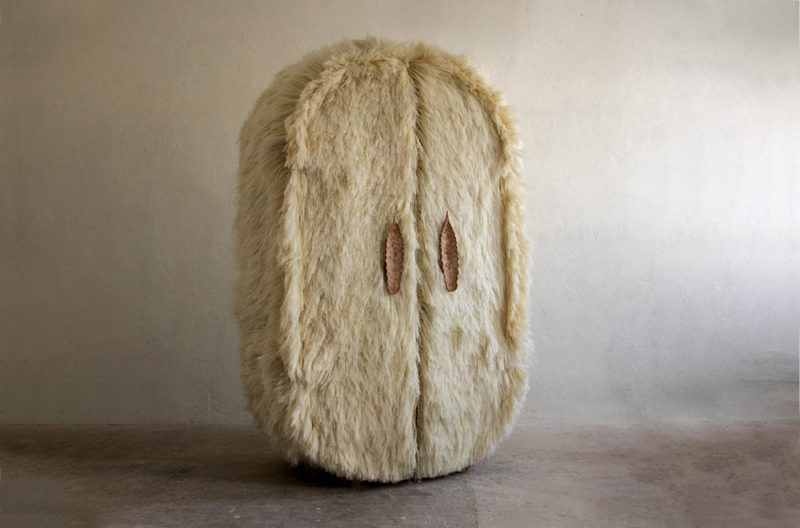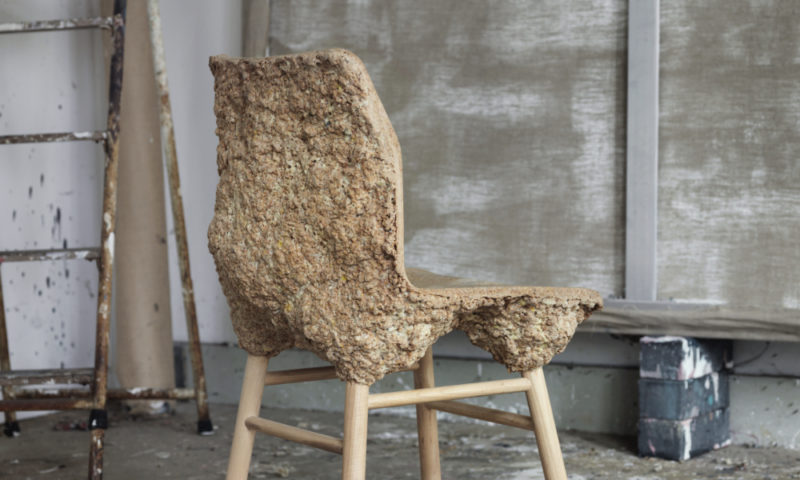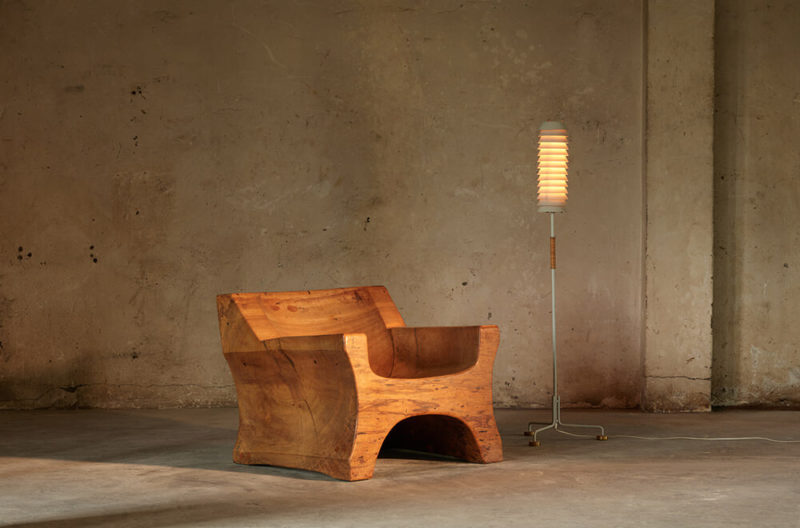‘Ibuju Table’, 2022
Fango
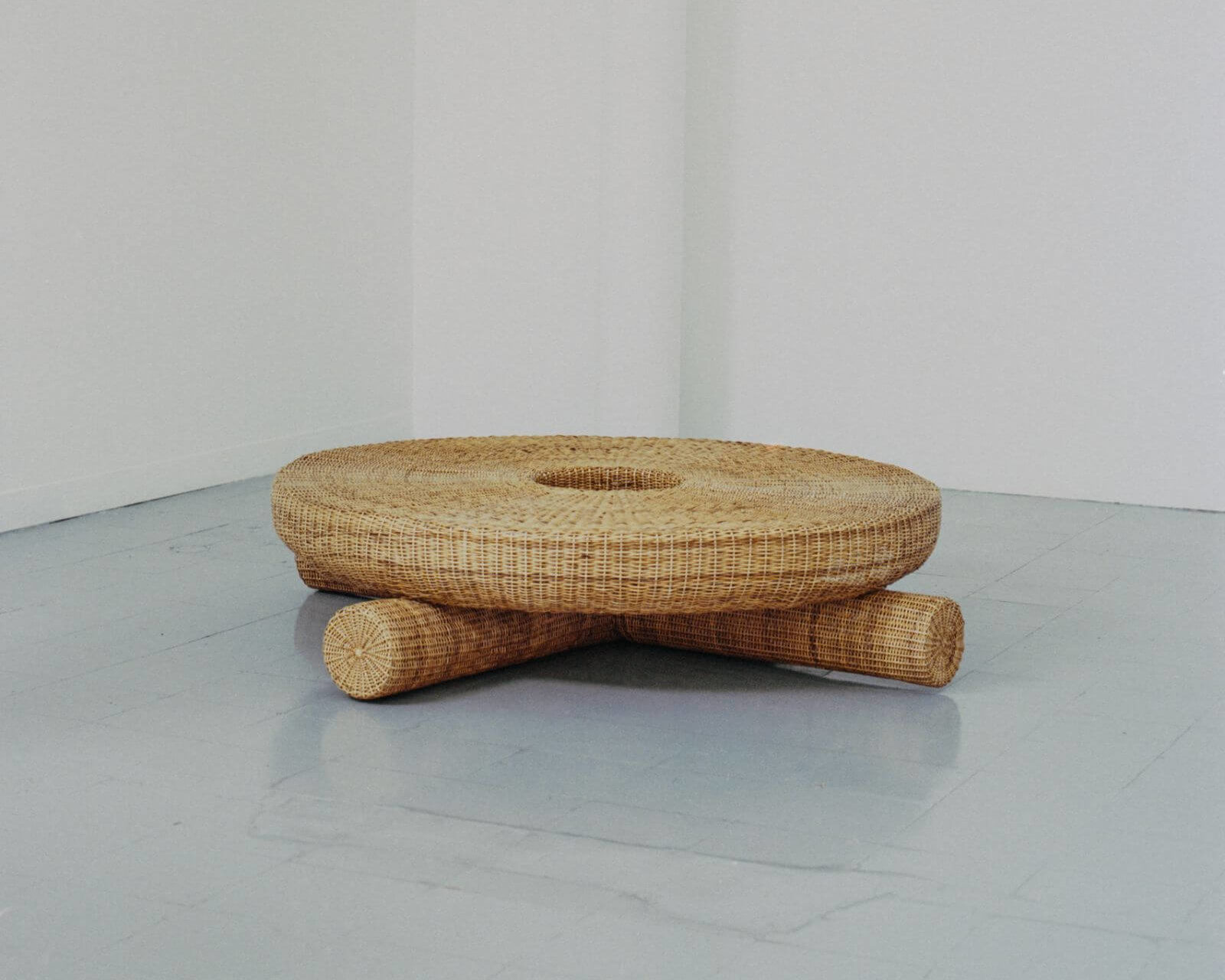
Fango, ‘Ibuju’ table, 2022
COURTESY: Fango & Juliana Gómez Quijano
60% OF THE deforestation that takes place in Colombia occurs in the Amazon jungle. Along with the decimation of tropical trees is the destruction of the yaré vine, which can be used in woven furniture design. With his new ‘Ibuju’ collection, Medellín-based designer Francisco Jaramillo hopes to bring this renewable material to people’s attention, highlighting the fact that it can be sustainably harvested if the tropical rainforest ecosystem is preserved.
Comprising so-called “primitively-composed” benches, stools, and tables, the collection uses yaré fibre to produce meticulously crafted heirloom pieces. “My goal is to rethink the design and the manufacturing of native wooden pieces using newly sourced and sustainable materials,” Jaramillo says. “It’s not about making furniture en masse but rather a limited run of quality pieces showing the strength and beauty of this material.”
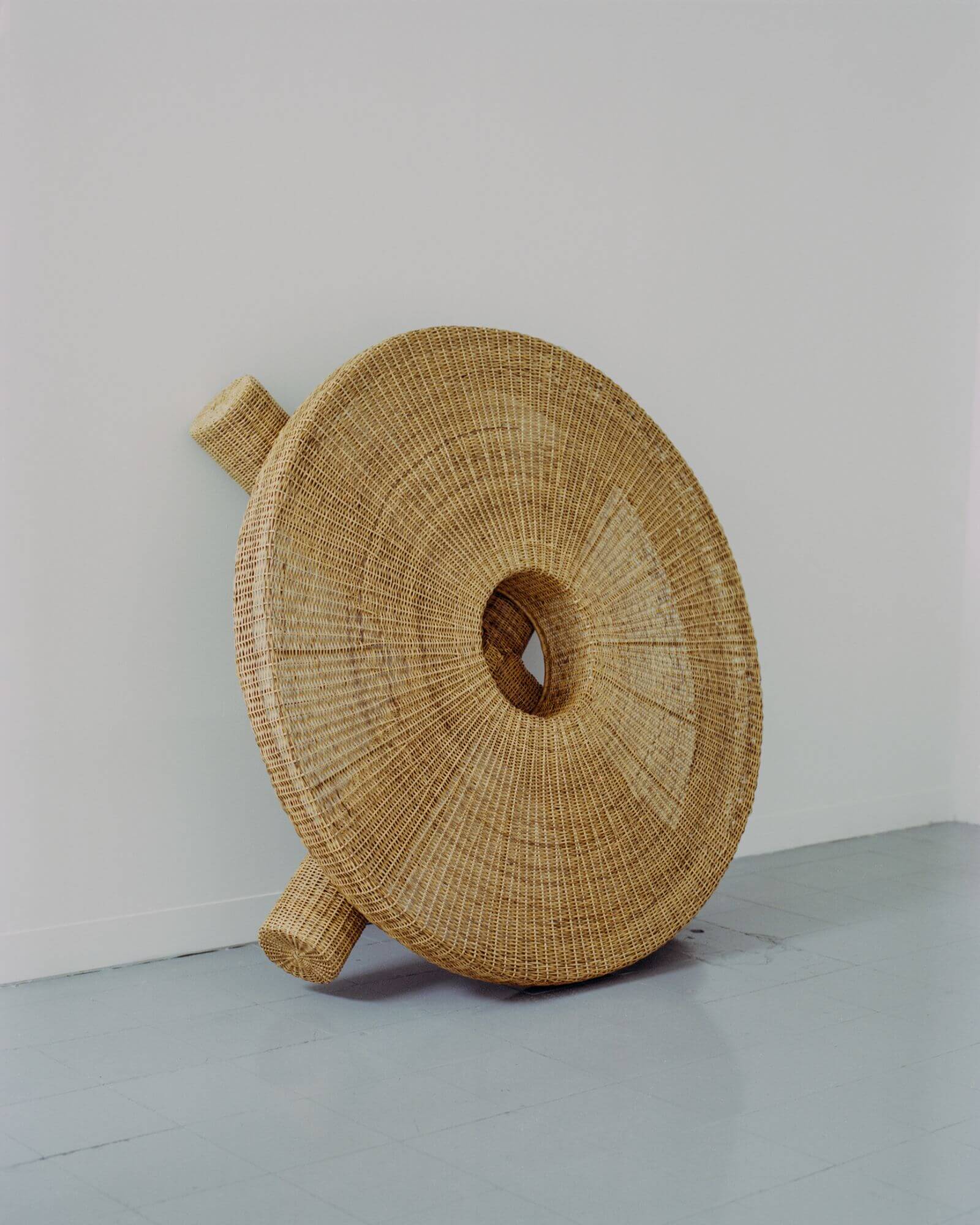
Fango, ‘Ibuju’ table, 2022
COURTESY: Fango & Juliana Gómez Quijano
Rather than simply create paired-back assemblages of solid wood that resemble ancient ruins, the collection is characterised by softer, malleable woven skins that retain and actually refine the same geometry. The low-lying ‘Ibuju’ table is defined by two crisscrossing “logs” supporting a larger circular plane and a central void that reveals the point at which the two perpendicular cylinders intersect and fuse. The monumentality and scale of the piece imbue it with an almost totemic presence, while still demonstrating the mastery of the craft involved. Both monolithic and textured, the pedestaled platform can take on multiple functions. Joining this design is a range of settees defined by a similar vocabulary of massed, entwined forms, which also demonstrate the ability and agility of Colombian artisans to adapt their age-old skills to new applications.
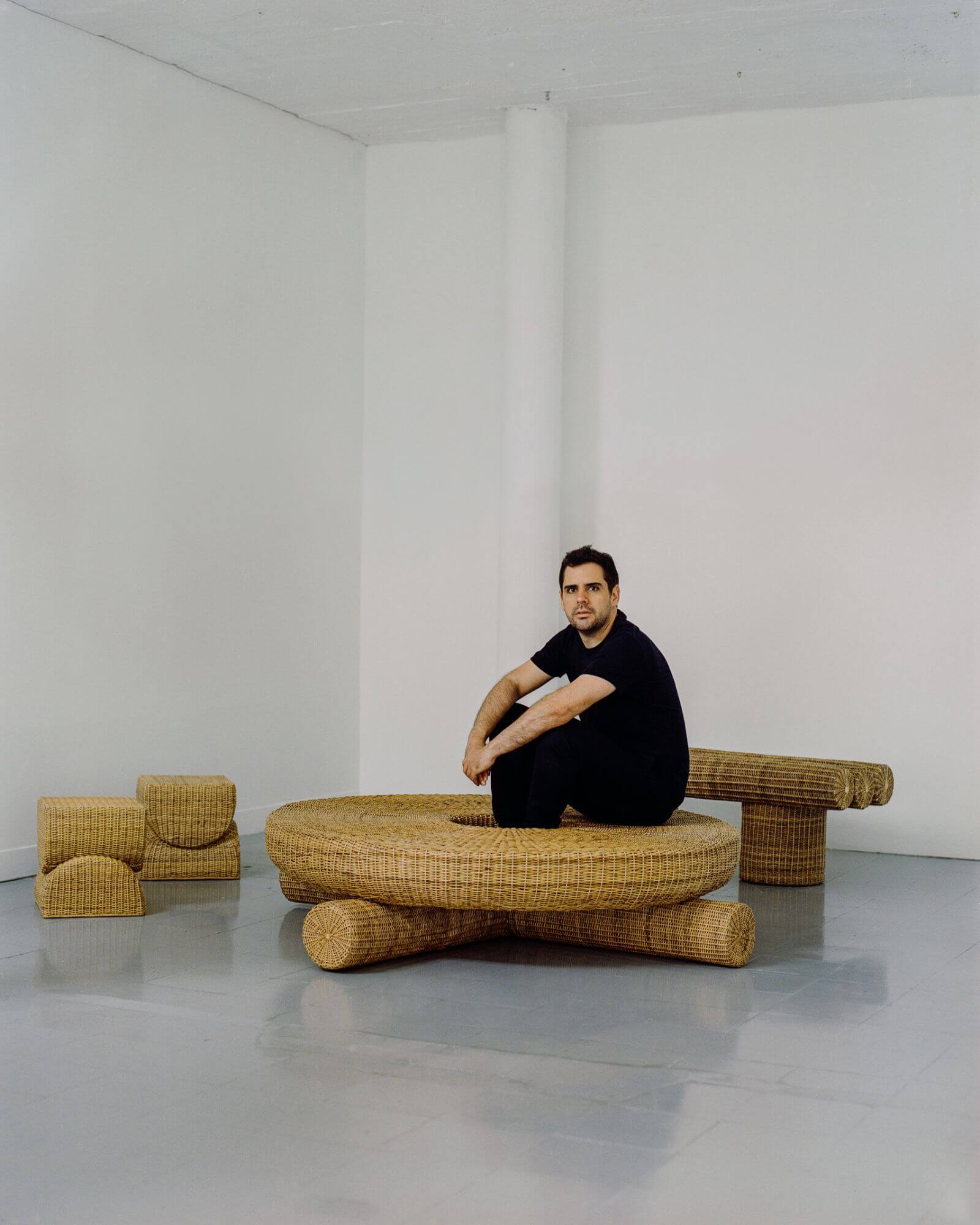
Francisco Jaramillo with the ‘Ibuju’ collection, 2022
COURTESY: Fango & Juliana Gómez Quijano

